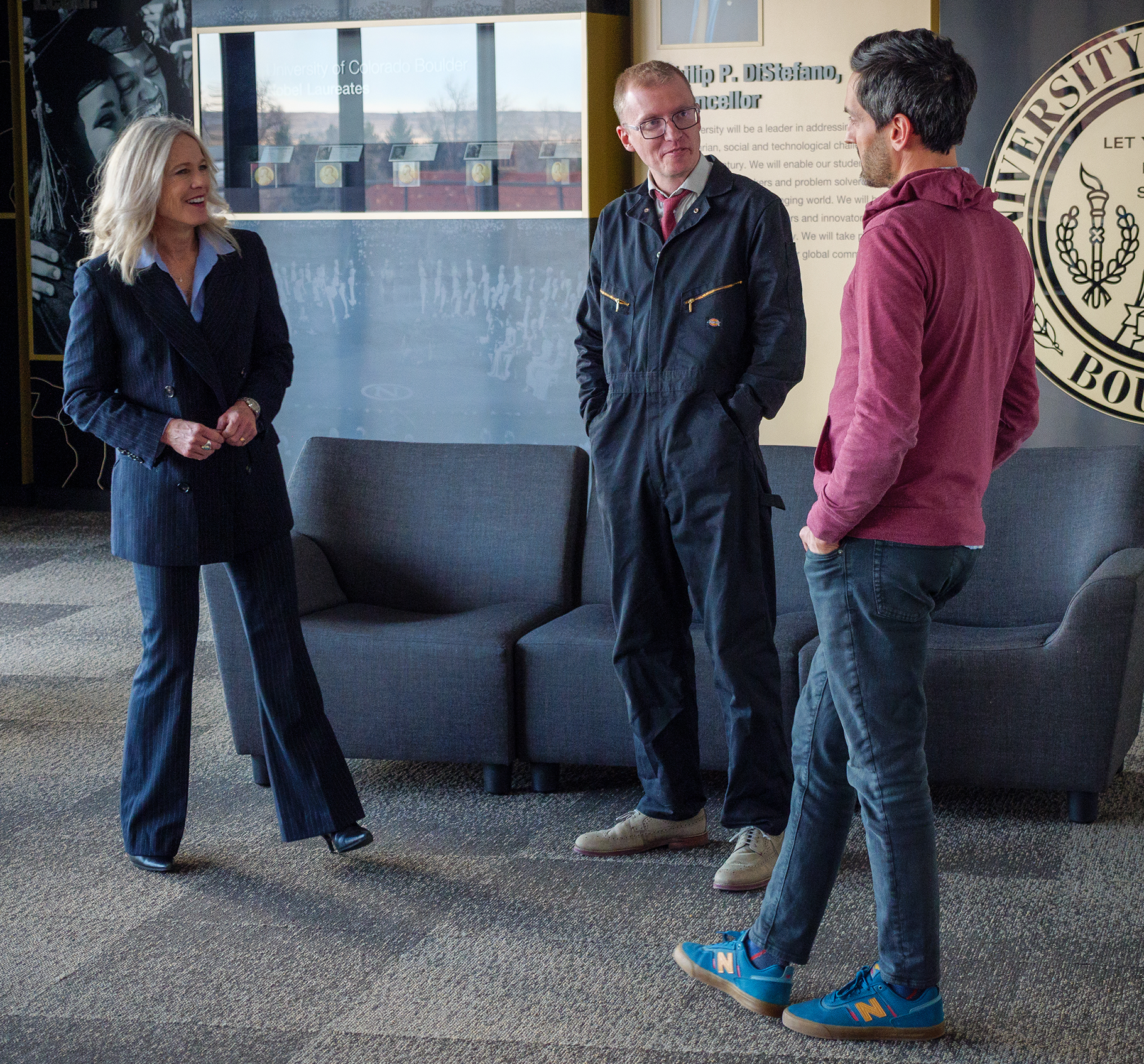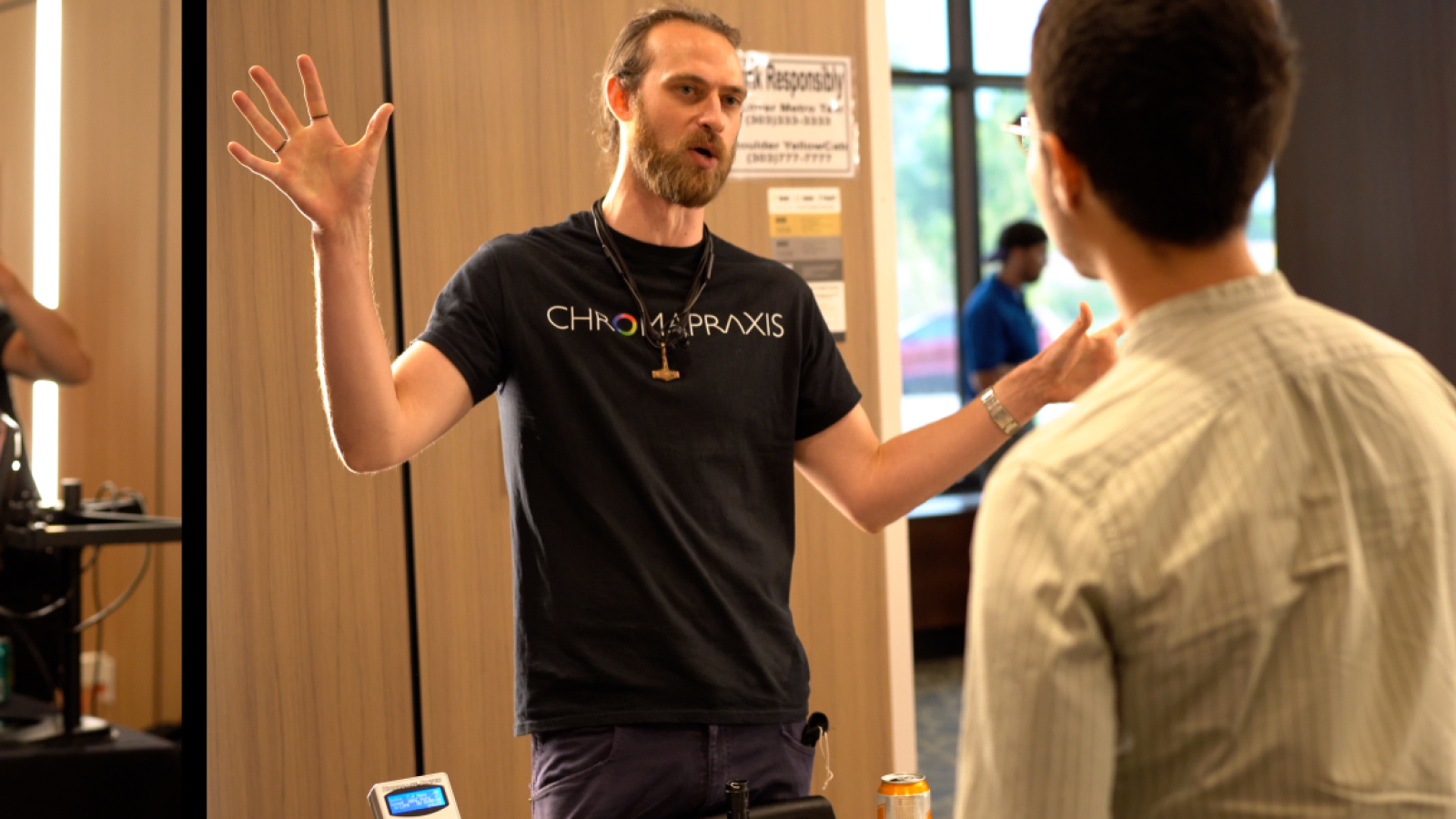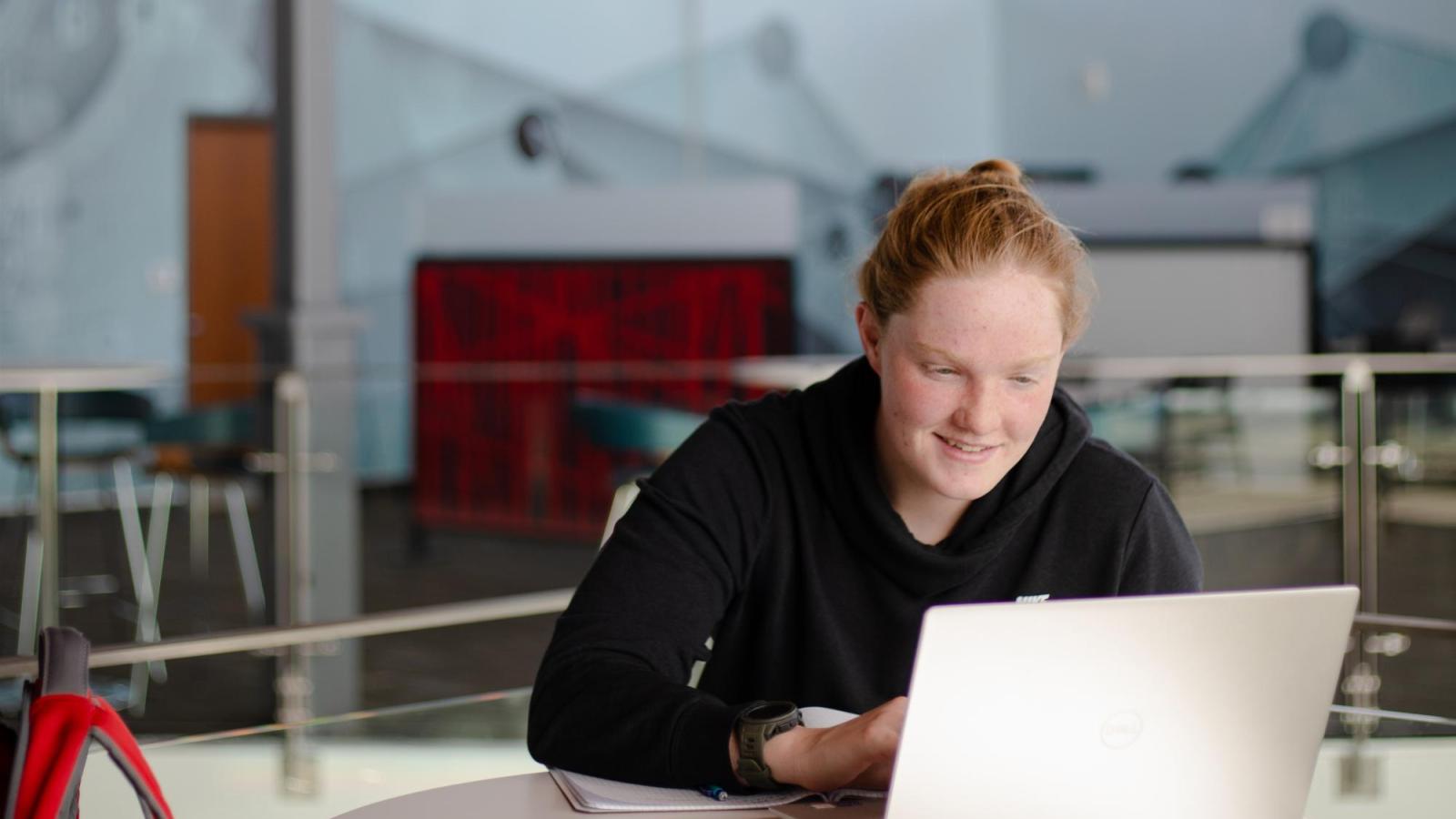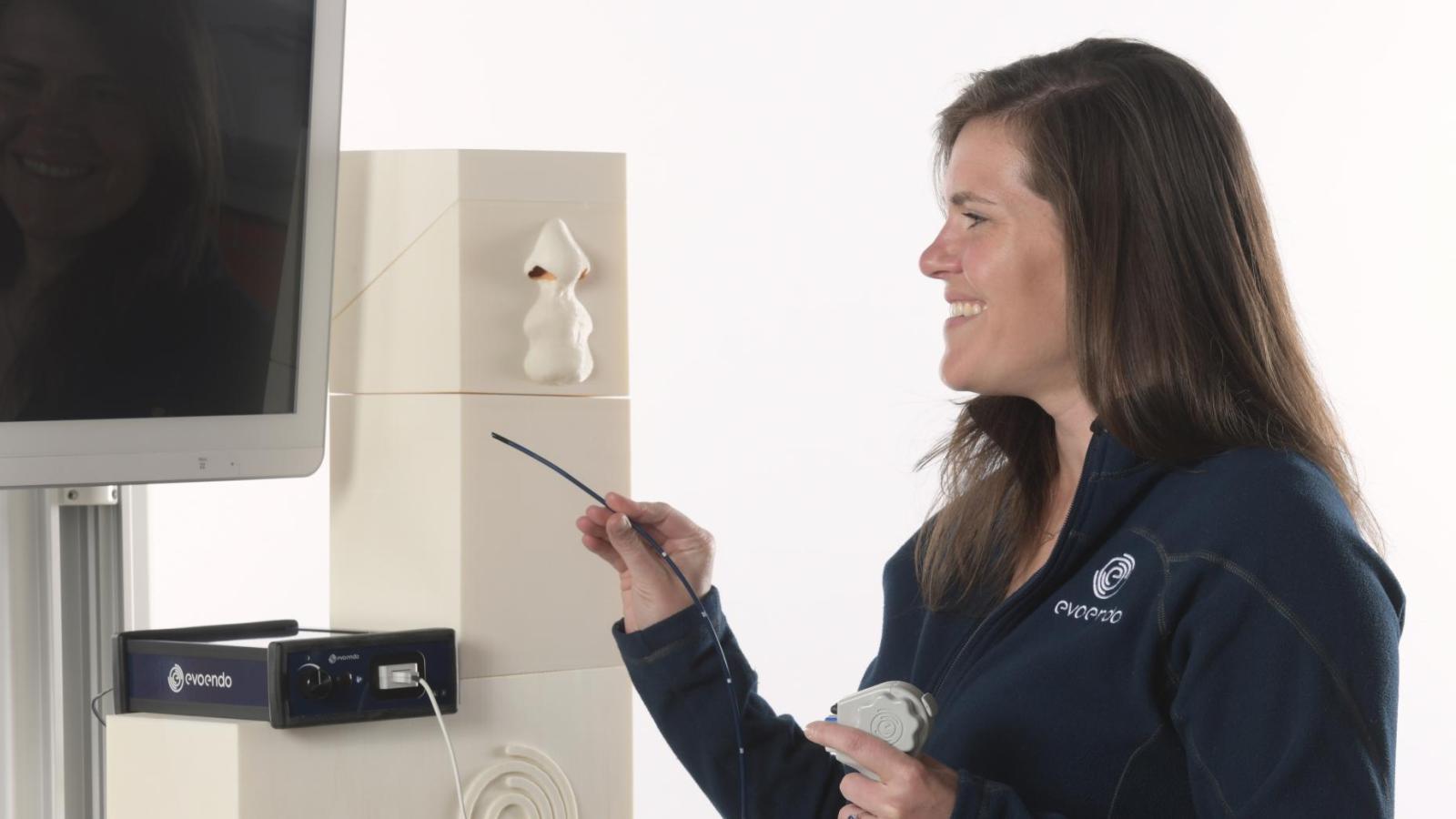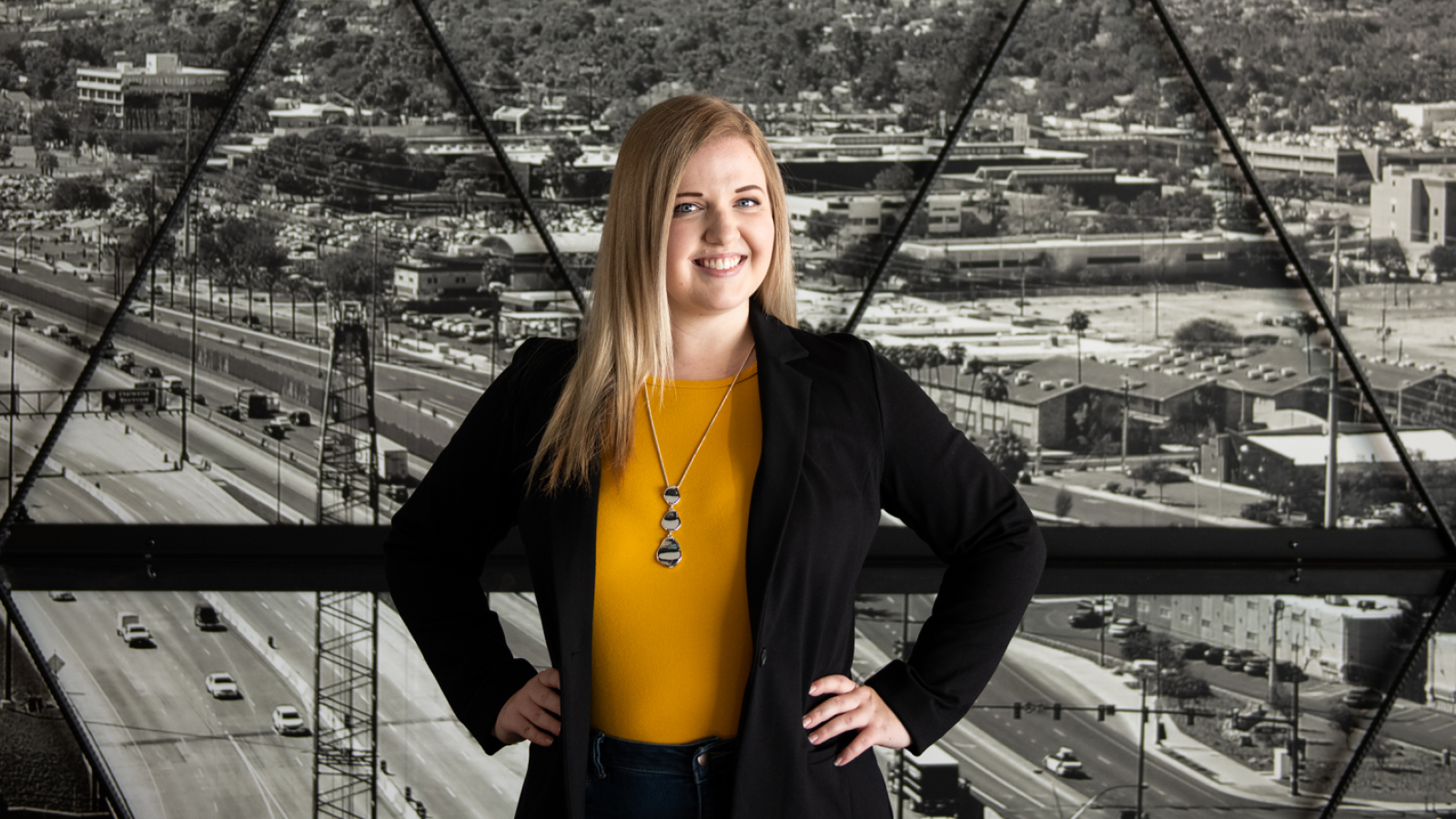
Campus COVID-19 team was a ‘call to service’ for three CU engineers
“The urgency of the pandemic meant when people had data, they shared
it openly on platforms like Twitter.”
For the scientists and engineers who were part of CU Boulder’s Pandemic Scientific Steering Committee and Science Team, the gravity of the situation overrode the typical priorities of academic life.
As the COVID-19 virus began to sweep across the U.S. in March 2020, the university convened a group of experts who would help shape the campus response. The priority of “the Team,” as the committee came to be known, quickly became the safety of the CU Boulder community.
Assistant Professor Cresten Mansfeldt, an environmental engineer who worked on a monitoring program to detect the virus in campus wastewater, said everyone felt a sense of urgency.
“If you had a need or problem, you could reach out to somebody, and they’d immediately be trying to find resources and solutions for you,” he said. “Everyone had laser focus.”
The group of experts was highly interdisciplinary, recruited from a wide range of academic disciplines and administrative units.
“What I got out of it was just a real, deep appreciation of the incredible, diverse scientists that we have and the talent that we have,” said mechanical engineer Shelly Miller, who was recruited for her work in indoor air quality. “I know these scientists are on campus, but you don’t get to see what they do, day in and day out, except in this remarkable situation.”
But the formation of the Team did more than break down the silos between academic disciplines. The need to gather data and make informed decisions in real time led to a streamlined version of peer review, the hallmark process through which academics vet research papers for publication.
“The urgency of the pandemic meant when people had data, they shared it openly on platforms like Twitter, before it had been submitted to journals,” said computer scientist Dan Larremore, who works in computational social science and analysis of large-scale networks. “The online community of academics and researchers reviewed the information immediately and amplified the important stuff.”
When the team of scientists and engineers handed off their recommendations on how to mitigate the spread of COVID-19 on campus, the broader CU Boulder leadership wasted no time in implementing it.

